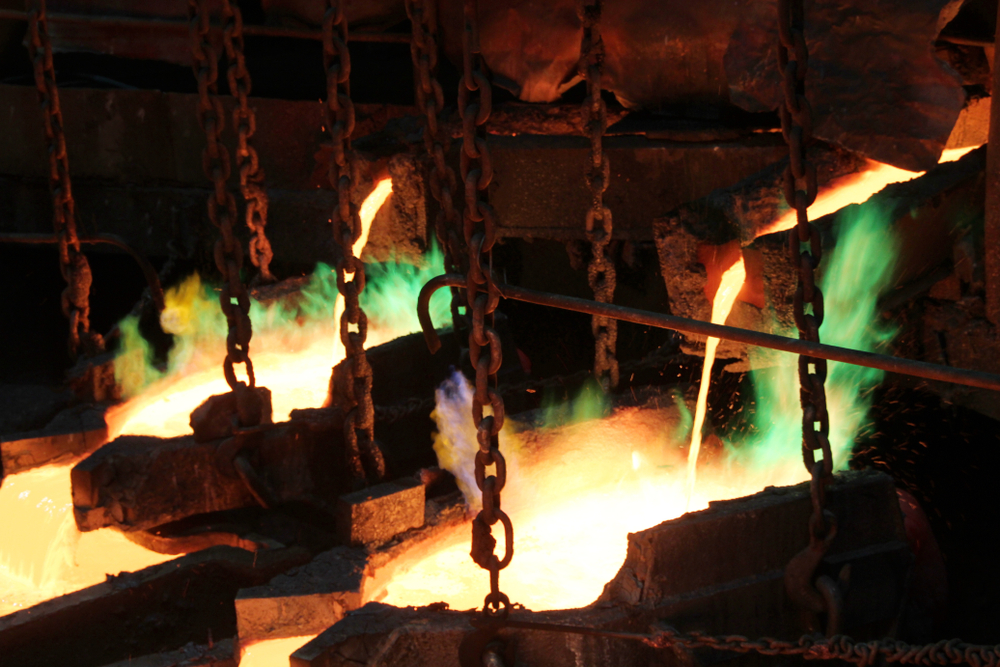The move into asset management by the Russian miner marks the first time a member of the mining industry has introduced product trackers

Nornickel is the world’s largest producer of palladium and high-grade nickel (Credit: Shutterstock/Alexander Chizhenok)
Nornickel has announced today (18 January) that it has launched Exchange Traded Commodities (ETCs) to track the price of precious metals.
The move into asset management by the Russian miner, which is the world’s largest producer of palladium and high-grade nickel, marks the first time a member of the mining industry has introduced product trackers.
ETCs typically attempt to track the daily performance of underlying commodities and, alongside metals, they offer traders and investors exposure to products like natural gas and livestock.
Anton Berlin, Nornickel’s vice president of sales and distribution, said: “The exchange traded products carry the benefit of financial assets with no restrictions pertaining to investing in LME deliverable metal and issuing warrants. They offer investors competitive cost of ownership and transaction fees”.
Nornickel has launched the ETCs through its Global Palladium Fund on Deutsche Börse
The ETCs have been launched by its Global Palladium Fund (GPF) on Deutsche Börse – a move Nornickel claims will provide markets with “low-cost access to commodity investment opportunities”.
The fund, which was founded in 2016, contributes physical palladium, platinum, gold and silver to the ETC instruments and intends to launch the ETCs on the London Stock Exchange within a few days.
Swiss-based company Tokentrust AG is providing the ETC programme with metal custody and additionally uses its Atomyze platform with Distributed Ledger Technology (DLT) to immutably record metal information, granting an extra layer of security.
The ETCs are offered at London Metal Exchange (LME) spot price with a competitive total expense ratio on the current market.
GPF’s CEO Alexander Stoyanov said: “Our way of digitalisation of commodities allows one to capture and trace the source of underlying metals and the way they were produced, coupled with environmental, social and corporate governance (ESG) credentials.
“Nornickel, whose products we carry, sets a new standard for responsible mining by fully endorsing the UN2030 charter and the existing LBMA source of metal standards. This gives our ETC platform a market-leading position and a clear differentiator.”
ETC announcement follows news Nornickel has joined blockchain initiative
Nornickel’s latest announcement follows the news last week that it has joined a blockchain initiative as part of its bid to support responsible minerals sourcing and production practices from mine to market.
The move the miner, which is also a major producer of platinum and copper, will see it link up with other industry stakeholders across the minerals supply chain as part of the Responsible Sourcing Blockchain Network (RSBN).
Blockchain technology is being increasingly deployed across industries for a myriad of purposes – often as a means to improve corporate transparency and accountability through the capacity to produce and maintain a trusted record of transaction activity throughout a supply chain.
In a sometimes murky world of extractive mineral sourcing, it is easy to see how a technology that makes traceability more effective through digital certification and permanent record-keeping could be beneficial.
With Nornickel joining the RSBN, a series of its supply chains will be audited annually against key responsible sourcing requirements by services provider RCS Global, with the audits covering each stage of the company’s vertically integrated operations from Russian mines to refineries in Finland and Russia.
The firm believes the integration with RSBN is another step towards it achieving “greater business sustainability” by creating a permanent record of minerals on the blockchain technology.
